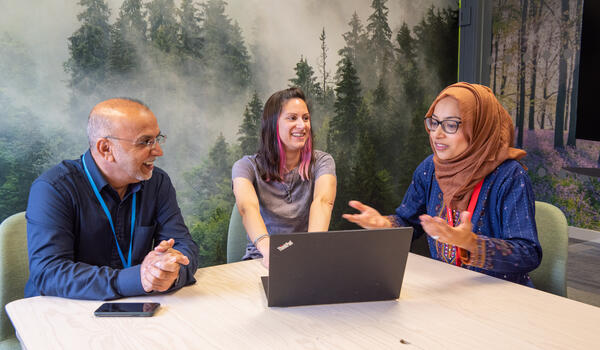What does a consultancy project mean for you?
Several Management School degrees include consultancy or dissertation modules. For some programmes this is a required part of your studies, while in others you can choose to take part.
In Lancaster University Management School, if your degree includes a Consultancy Project, this unique opportunity involves gaining valuable work-related learning and experience with one of our partner companies. You will work in small teams, where you will tackle a real-world challenge to help the company to find a solution. The best part is that the experience is embedded into your study time so you will gain practical experience of using your project management, communication, collaboration, and critical thinking skills, among others in a live (but safe to try) environment. Use the prospectus or your Course Handbook to find out if the option is available in your chosen degree.
Firstly, Consultancy Projects are an interesting and challenging opportunity that look great on your CV!
- See how the theoretical knowledge from your degree and the transferable skills from your experience can be put into practice, as well as developing new skills.
- Evidence your newly developed consultancy skills, including negotiation, active listening, contracting, collaboration, communication and many more in a real-world setting
- This is your chance to explore new ideas in a safe and supportive environment. You are encouraged to experiment, and it’s absolutely fine if not everything works out, learning from setbacks is part of the process.
- You will build your academic and professional contacts and network extensively during the Project, e.g., with your fellow students, academic supervisor, key contacts in the client company.
Consultancy Projects will help you to build an incredibly valuable skillset to not only be personally beneficial, but to demonstrate your potential to your chosen employers when competing in student and graduate recruitment processes.







